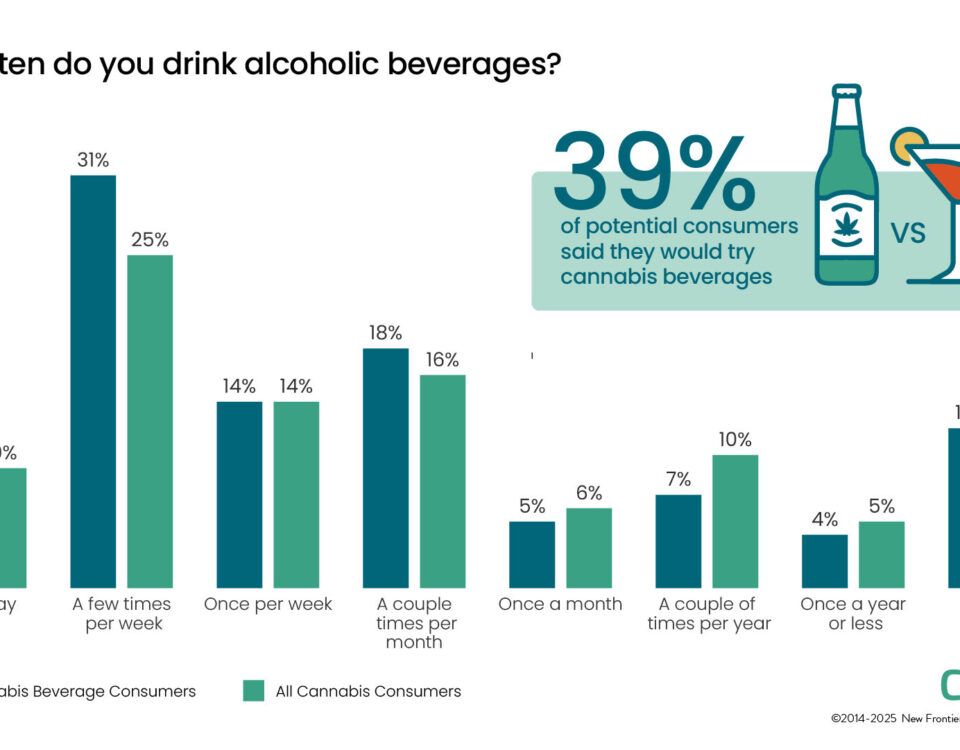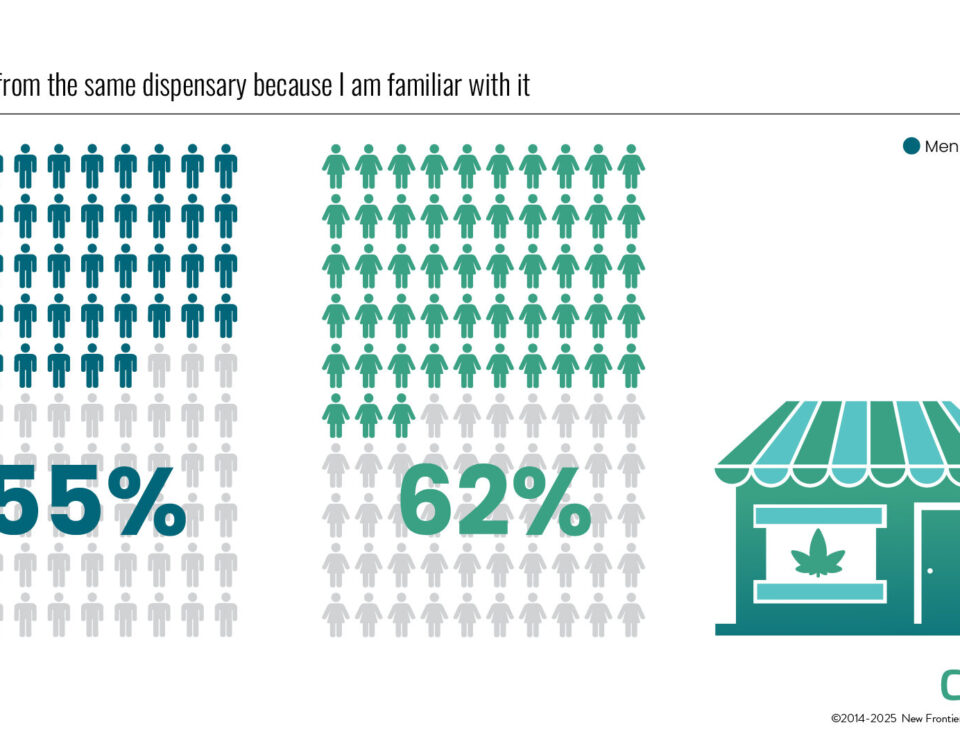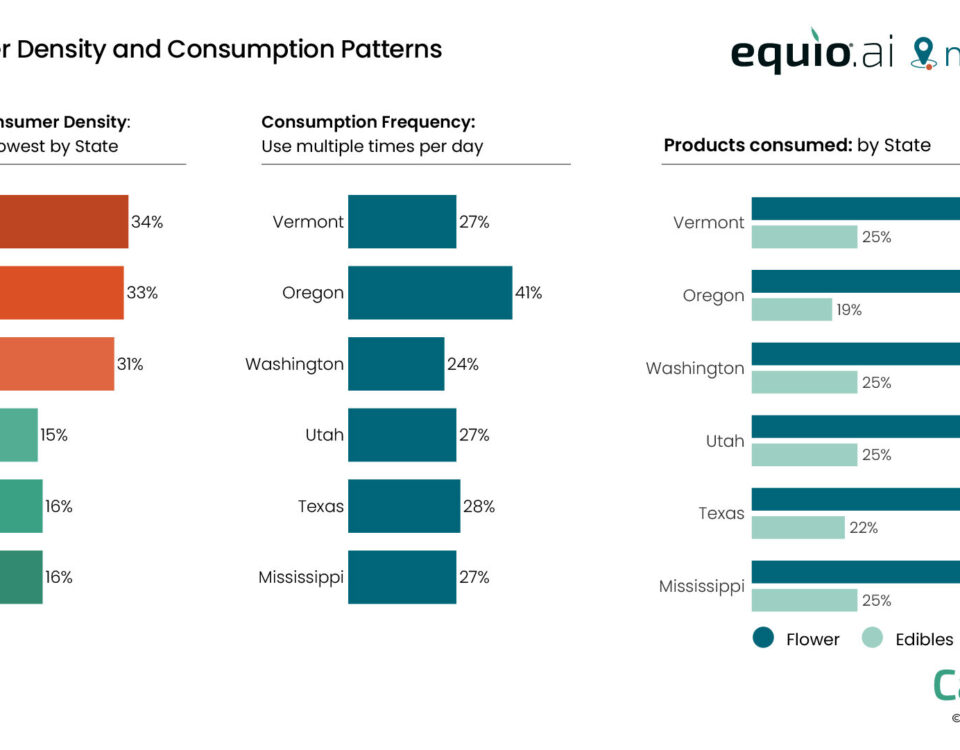Letting Voters Decide Is Not a Last Word for Prohibition Causes

The Economic Impact of Medical Cannabis Consumers
May 17, 2021
New Research Reveals 30% of CBD Consumers Expect to Increase Usage
May 27, 2021By Noah Tomares, Research Analyst, New Frontier Data
On Election Day 2020, five U.S. states passed a total of six ballot initiatives, dramatically expanding access to cannabis: four (Arizona, Montana, New Jersey, and South Dakota) adopted adult-use measures, while both Mississippi and South Dakota approved medical cannabis programs.
South Dakota, a notably unique case, made history by voting simultaneously for both adult-use and medical programs. Though more than 54% of voters approved Amendment A (the adult-use measure), Republican Governor Kristi Noem summarily declared that “the wrong choice” before backing a lawsuit aimed at voiding that outcome.
A judge in the state’s Sixth Judicial Circuit Court subsequently ruled Amendment A unconstitutional on procedural grounds. The court’s finding was that the ballot measure included multiple subjects rather than a single issue as required by the state constitution, thus should have been referred to voters via its constitutional convention process.
A similar argument was used to keep a medical cannabis initiative off of the ballot in Nebraska. Cannabis advocates from the Marijuana Policy Project bemoaned the removal of Measure 26 despite the wishes of 190,000 Nebraskans who signed the petition for putting it to a vote, reportedly dismissing it as “insider political tactics because they cannot win this debate.”
There have been other recent instances of procedural objections being utilized to undermine successful cannabis ballot initiatives. Despite nearly 69% of voters’ approval of medical marijuana, the Mississippi Supreme Court overturned Initiative 65 in response to an emergency petition filed by Madison’s Republican Mayor Mary Hawkins Butler.
That petition cites section 273(3), stipulating that “signatures of the qualified electors from any congressional district shall not exceed one-fifth (1/5) of the total number of signatures required to qualify an initiative petition for placement upon the ballot.”
While the intent of the law is to ensure that signatures are collected in an equitable manner, a bureaucratic rub arose since Mississippi lost one of its U.S. congressional districts. After the 2000 Census, Mississippi went from five to four districts, making the approval of any ballot initiative—regardless of content or intent—mathematically impossible.
Though eight initiatives have been approved in Mississippi since 2001 without facing the same degree of scrutiny, some 20 years’ worth of legislation may become subject to review. While a special legislative session is being discussed to address the issue, without it, both Mississippi’s medical marijuana program and the unworkable ballot initiative process appear to be tabled until January 2022.
With support for cannabis legalization reaching new levels of support, procedural objections may become a continuing ad hoc strategy for state officials unwilling to leave such decisions to voters.
In Florida, the Office of Attorney General Ashley Moody (R) requested that the Florida Supreme Court review the Make it Legal Florida petition. If approved, the petition would have allowed adults 21 and older to possess, use, transport, and purchase cannabis; it had already collected 556,049 signatures of the 891,589 required to place an initiative on the 2022 ballot. The court determined that the initiative was unconstitutional.
They argued that the ballot summary was “affirmatively misleading” because it said that adult-use cannabis would be made lawful in the state without explicitly acknowledging that the federal policy would remain unchanged, and that cannabis would remain illegal under federal law.
While two justices offered a dissenting opinion, arguing that it is self-evident that a Florida ballot initiative would only apply to Florida law, advocates will need to draft a revised measure before collecting signatures from scratch.
Despite those technical hurdles, cannabis legalization in the United States has found ever greater momentum. On the East Coast, New York legalized an adult-use program while Virginia substantially accelerated its timetable for implementing new cannabis laws. Even in traditionally red states, cannabis has been making headway. Meanwhile, on Capitol Hill, Senate Majority Leader Chuck Schumer remains vocal about his commitment to federal cannabis legislation, though there has been no indication of the Biden administration’s cooperation, and some Democrats oppose such.
For more information regarding dynamic developments driving consumer preferences and public policy, check out New Frontier Data’s next webinar: The U.S. Cannabis Consumer Landscape: Actionable Insight for Brands & Retailers on Tuesday, May 25 @ 3pm EST.




